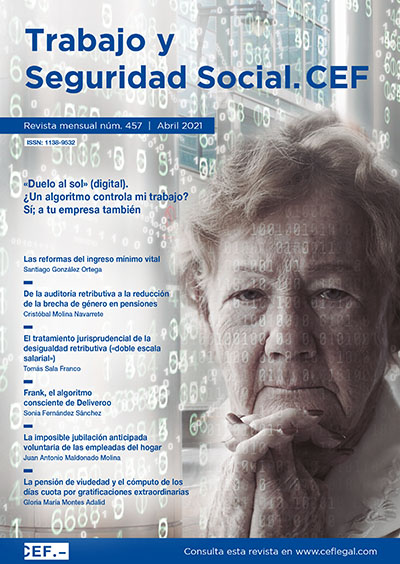Discriminación indirecta vs. sostenibilidad del sistema. La imposible jubilación anticipada voluntaria de las empleadas del hogar
Comentario a la Sentencia del Tribunal de Justicia de la Unión Europea de 21 de enero de 2021, asunto C-843/19
DOI:
https://doi.org/10.51302/rtss.2021.2356Palabras clave:
jubilación anticipada, discriminación indirecta, empleadas del hogarResumen
El Tribunal de Justicia de la Unión Europea estima que no hay discriminación indirecta al exigir que la jubilación anticipada voluntaria se limite a las personas cuyas pensiones son superiores a la mínima garantizada, pese a que estadísticamente las más perjudicadas sean las mujeres. Es la primera vez que –analizando una norma española de Seguridad Social– estima que no hay discriminación indirecta por existir un objetivo perseguido por la aplicación de dicha disposición, criterio o práctica que esté objetivamente justificado; objetivo que en este caso es la sostenibilidad de las pensiones. Se impide la jubilación anticipada voluntaria a las empleadas del hogar, lo cual tendría que compensarse permitiendo su jubilación como colectivo que realiza trabajos penosos.



















